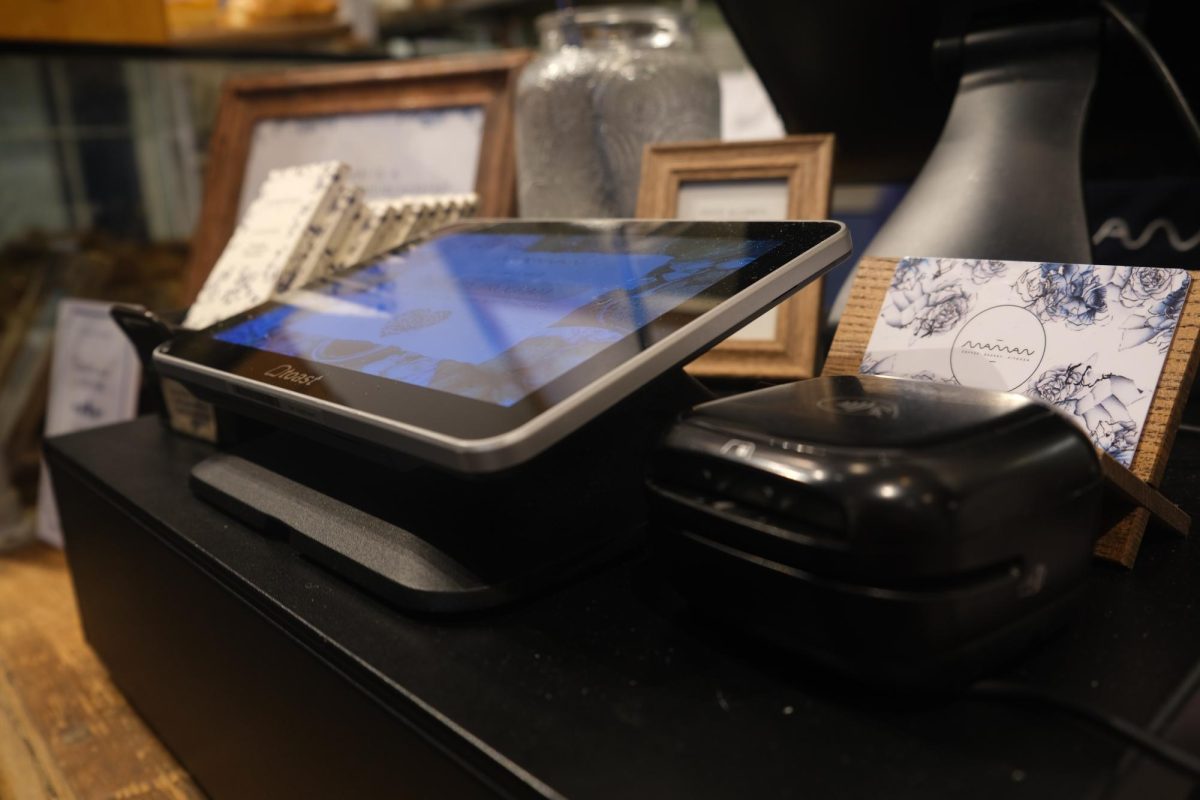The barista swivels their face to look in the other direction as they slyly turn over the tip screen that reads the following options: 20%, 22%, 25% or custom. You press 20%, the cultural norm in New York City, and they give you a weak smile, lift the lever to the drip coffee tap and send you on your way. You feel good about donating to their paycheck, but the absence of hospitality and simplicity of the task makes you question if it was worth tipping that extra dollar or two.
The tipping controversy has no clear starting point — the idea of rewarding someone for a job well done has been around for centuries, but recent discourse has grown with the evolution of technology and an increasingly competitive restaurant industry. While the original and most common reason for tipping is to give thanks for good service, the rise of labor costs and rent prices has turned it into a socially obligatory transaction.
Like many students, Gallatin sophomore Catherine Herber wants to support local businesses, but when it comes to tipping, she often feels obligated to rather than wanting to as a way to reward good hospitality.
“They turn the screen around and often stare at you to make your decision, which makes me feel a bit peer pressured to hit the larger tip button,” she said.
Even when cashiers do turn away to let the customer tip as they please, the social discomfort of deciding if — and how much — to tip has become an increasingly hot debate in recent years.
Once it’s established someone is going to tip, the next burning question is how much. Though the standard in U.S. food service has always been 15% to 20% of the final bill, the accessibility of automated payment methods has led businesses to inflate their tipping options to 20%, 22% or 25%. Additionally, many businesses that didn’t originally ask for tips now do, such as grocery stores, deli counter workers and concession stands. In a post-pandemic era, the digitalization of tipping has taken advantage of tipping culture, making many people feel pressured to oblige.
Beyond cafes, tipping remains consistent at sit-down restaurants, where guests receive table service. Still, different restaurants vary in their tipping policies — KazuNori in Union Square doesn’t accept tips — excellent service is considered a baseline expectation. The well-respected Union Square Hospitality Group also had a long-standing no-tipping rule at its restaurants. But instead of paying their workers a higher hourly wage, the group reinstated tipping in 2020 to help servers make more money during the pandemic.
Steinhardt sophomore Sofia Burke also wants to support local businesses and struggling staff, but thinks the right to extra compensation is inappropriate.
“It is a barista’s job to make coffee,” Burke said. “I have no incentive to tip them if they aren’t doing more than what their job requirement asks of them.”
Students are already paying the price for the drink to not make it themselves — is it reasonable for them to pay a few dollars extra, just for a barista to simply pour coffee into a cup?
Steinhardt first-year Brian Wang who works as a Barista in the East Village uses tips as a measurement of good service.
“Tipping encourages me as a barista to provide friendlier service, greeting customers warmly and making conversation,” Wang said. “Not only is it more gratifying from a personal standpoint, but customers I take the time to talk with a bit tend to lead to greater tips.”
The rationale that people can get away with not tipping baristas lies in the assumption that they make an hourly minimum wage. The average hourly wage for baristas in New York is $17, and $16 nationwide. It’s hard to rely on general statistics when someone’s livelihood is in question, but it’s confirmed on the applications of Blank Street Coffee, La Colombe and Blue Bottle Coffee that their baristas are paid $15 to $20 an hour.
Tipping can serve two functions: rewarding good service and supporting workers’ livelihoods. I never want to discourage tipping for genuine hospitality, but if more employers paid their workers adequately, customers shouldn’t feel obligated to tip for a single cup of coffee and mediocre service.
Contact Bella Simonte at [email protected].






















































































































































